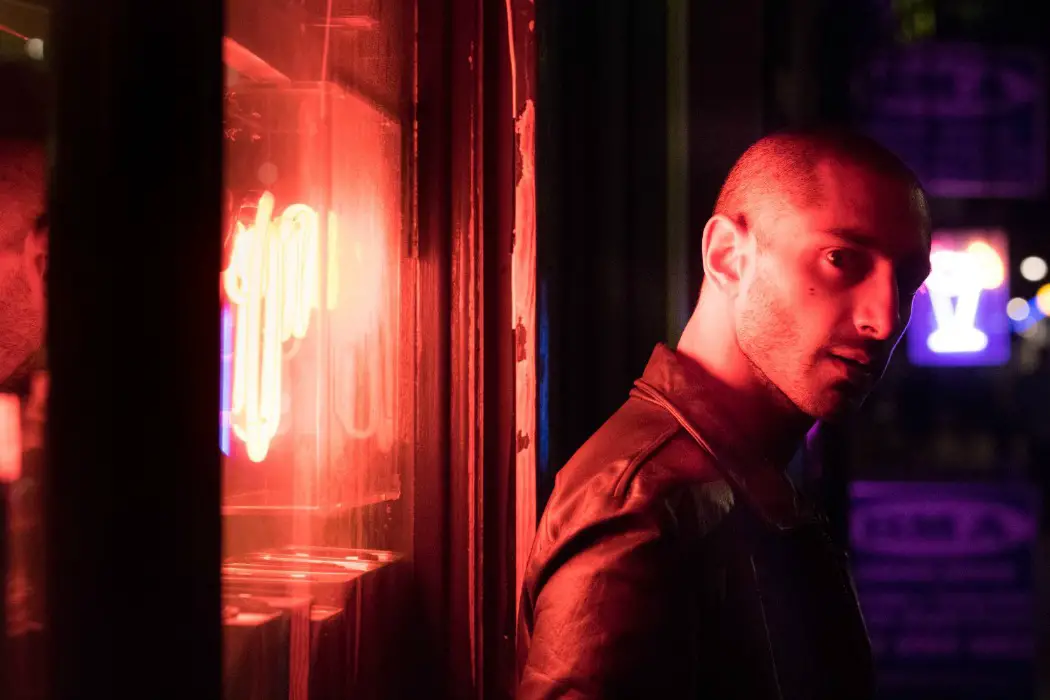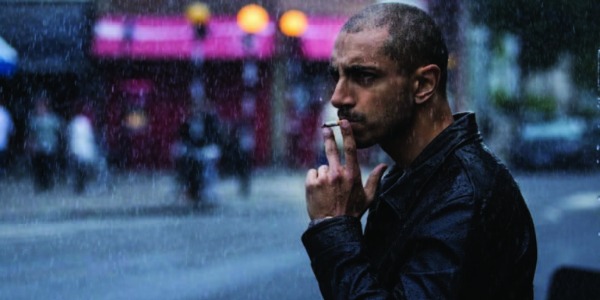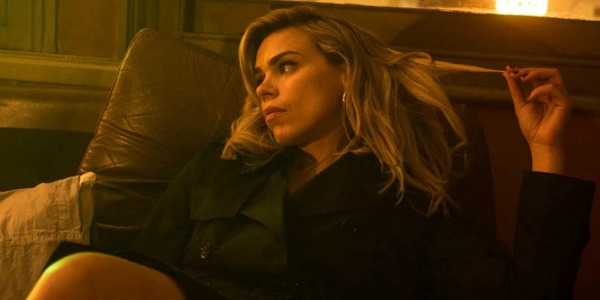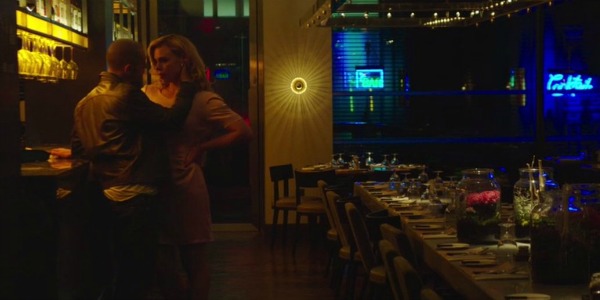CITY OF TINY LIGHTS: Will It Inspire A New Breed Of British Noir?

I'm a copywriter with a passion for film and screenwriting.…
The British film City of Tiny Lights opened in cinemas a couple of weeks ago, starring the ever-impressive Riz Ahmed. Ahmed is currently making name for himself on both sides of the Atlantic thanks to acclaimed TV shows like The Night Of and his recent role in Rogue One: A Star Wars Story as Bodhi Rook.
Shining a light on the now
City of Tiny Lights, directed by Pete Travis (Dredd, Vantage Point) and written by Patrick Neate (adapted from his novel) has had mixed reviews, but what most critics agree on, apart from Riz Ahmed’s great performance, is the fact that the film potentially opens the door to a new breed of British noir. One which represents contemporary, multicultural London (and hopefully in the future, other cities and towns) in the 21st century – in a way that closer represents a reality many of us are familiar with in austerity Britain and the issues that go along with that.
In the case of City of Tiny Lights, this means a London coping with issues as far-reaching as rampant gentrification and commercial development, drug dealing and the real and imagined threats of religious fundamentalism.
A look back at film noir
So what exactly is British noir, and how is it different from regular film noir? Traditional film noir as we know it developed in the US during the Second World War, including all the tropes we’re familiar with: hardboiled private eyes, mysterious femme fatales, dark, shadowy worlds where corruption and crime are rife. Think films like Raymond Chandler’s 1946 film The Big Sleep.

British noir developed around the same time. According to this article by Mike Bartlett for Taste of Cinema, it shared many of the same traits as American noir, but crucially it often focused on social, rather than personal, trauma and desires. Think films like Brighton Rock (1947), Waterloo Road (1945) and Powell and Pressburger’s The Small Back Room.
This makes sense in the 1940s, in a Britain ripped apart by war, where community was incredibly important. But does it still translate now – post Margaret Thatcher’s famous speech, that there’s no such thing as society and David Cameron’s hollow assertion that ‘we’re all in it together’ when ushering in the modern version of austerity Britain?
A film of two halves
City of Tiny Lights tells two intertwining stories, so in that sense, it actually reflects both traditional and British noir. On the one hand, it tells the story of private eye Tommy Akhtar (Riz Ahmed), with numerous flashbacks to his teenage years. But the other story, the investigation that Tommy’s involved in during in the present day, is very much a story of the whole community; in this case West London, although the same thing is happening throughout the capital.
Both stories have their highs and lows, but it’s the community-focused story that’s the most interesting and gripping and hints at the power of British noir to tell the contemporary stories that so desperately need telling, as more and more voices in British society are silenced by the mainstream media and politicians.
The description for City of Tiny Lights attempts to outline the plot like this: “In the teeming, multicultural metropolis of modern-day London, a seemingly straightforward missing-person case launches a down-at-heel private eye into a dangerous world of religious fanaticism and political intrigue.” In true noir fashion, what becomes clear is that nothing is as it seems and without giving too much away, it’s the sinister establishment figures that live in the shadows, not the so-called religious fanatics.

There’s one line in the film that sums this up perfectly. During the investigation Tommy’s father asks him (with regard to who’s behind things) “Fundamentalists?” Tommy’s reply is acerbically accurate when he says “Government or otherwise”. As this shows, there’s some great dialogue in the film that really gets to the heart of the duplicitous times we live in, but at times it tries too hard to stick to its noir roots…with over-the-top ‘hardboiled’ one-liners like “I’ve had bog paper more abrasive than you”.
While some of the film’s traditional noir tropes aren’t needed (the British noir-style sociological perspective is much more interesting) I did like the noirish cinematography, from shaky camera work and blurry neon glimpses of rain-soaked urban London (think Nicolas Winding Refn style neon) to the sweeping shots of the capital and the tiny lights of the film’s title.
The missing person case feels like pure noir, with femme fatale prostitute Melody, played by Cush Jumbo, walking into Tommy’s small, gloomy office to ask for help in finding her friend and flatmate, Russian prostitute, Natasha.
What makes the film so contemporary is that Tommy is British Asian, investigating a labyrinthine case in multicultural London, in a murky world of property development and gentrification bent on making money for the privileged few, at any cost to the communities it destroys in its wake, and a shadowy figure from US-counter terrorism, equally bent on unearthing so-called Islamic fundamentalism, even at the expense of covering up a murder and obstructing the British police.
Losing the plot
Running through this present-day plot are numerous flashbacks to Tommy’s past, revealing his relationship with first love Shelley, played by Billie Piper, who’s just stepped back into his life, and a dark tragedy that halted their romance in its tracks and presumably turned Tommy into the emotionally-battered figure we see before us. (They also introduce us to one of Tommy’s friends, ‘Lovely’ played by James Floyd, who comes back into his life via his investigation).
While Billie Piper’s performance as present day Shelley is great and the events surrounding the tragedy lend a raw depth to Tommy’s character, the flashbacks are the one part of the film that doesn’t quite work (for me at least).

I think it’s because they’re simply too nostalgic – as if a homage to a more innocent time when London didn’t face the issues it does now. It may have been 1997, a year when much of Britain was swept up in the euphoria of New Labour’s election victory (it seemed great pre-Iraq war) and the end of nearly two decades of Conservative rule, but the flashbacks still lack the social grit and realism of the present day story – and that makes the two stories feel a bit disjointed.
True, the teenage Tommy may not have been at the heart of political intrigue back in 1997, understandably worrying more about his love life and friends, but the flashbacks could still have touched on the feel of the time and woven in more cultural references.
For example, there’s one flashback where we learn why Tommy has a preference for a certain brand of whiskey (yes, in true noir form he drinks a LOT of whiskey). It’s because first love Shelley has brought a bottle along to a party, taken from her father’s drinks cupboard. But I couldn’t help thinking- wouldn’t any self-respecting teenager have been swigging alcopops back in 1997?
It seems like a small thing, but when the heart of British noir relies on its reflection of society, it becomes a lot more important.
Humour and emotion
In contrast, the present day story captures these cultural nuances perfectly. For instance, there’s a scene where chain-smoking Tommy is persuaded to have a word with his young protégé Osman (played by Rizwan Shebani) by his mother. Osman scoffs at Tommy’s advice not to smoke, saying scathingly he doesn’t smoke, he blazes. It’s funny but it also reflects the now, in a much sharper and more insightful way than the flashback scenes.
It’s actually Osman that lends City of Tiny Lights a lot of its humour in his scenes with Tommy, like when he’s supposed to be undercover and instantly draws attention to himself by berating a car for getting in his way when he’s crossing the road on route to his ‘mission’ – all teenage swagger and indestructible confidence.
When it comes to heart, it’s Tommy’s surprisingly touching relationship with his cricket-obsessed father that gives the film its emotional edge, both in flashback and the present day. It’s partly down to great acting by Roshan Seth, but once again it’s because the personal story also touches on the community story, hinting at the lot of first generation South Asian immigrants to Britain, many of who fought for Britain in the war only to be faced with a barrage of prejudice after being invited to live here in the post-war years.
In conclusion
When City of Tiny Lights doesn’t try too hard it’s brilliant, it’s the moments it strains itself to make a point that something is lost. The ending is probably the best example of this. Without giving anything away, it tries too hard to make a point about multiculturalism which just isn’t needed and feels too Hollywood. There’s much better moments throughout the film that capture it effortlessly, mainly when Tommy is out on the streets of his local neighbourhood investigating.
I really hope City of Tiny Lights does inspire a new breed of British noir. It’s a great vehicle for shining a light into the dark world of modern day crime and corruption, where the line between friend and enemy, good and bad is becoming ever more blurred.
With the sociological at its heart, it’s also a much-needed antidote to the cult of individualism that has, in part, seen the demise of social solidarity and the rise of dangerously larger-than-life figures like Donald Trump and Vladimir Putin.
Essentially, what City of Tiny Lights does is reflect urban British society as it really is, with a wide range of culturally diverse characters and communities at its heart.
Riz Ahmed addressed the British Parliament recently, warning that “the enduring failure to champion diversity on TV is alienating young people, driving them towards extremism and into the arms of Isis with “the lack of diverse voices and stories onscreen leading people from minority backgrounds to switch off and retreat to fringe narratives, to bubbles online and sometimes even off to Syria.”
Given that imperative and the imperative of challenging the dark tropes of modern-day Britain, from the often legal crimes of capitalism, seen in the social cleansing of London as property developers run riot, to the rise of racist hate-crime and Islamophobia post-Brexit, a new breed of British noir is needed now more than ever.
What film noir perfectly captures the genre for you?
City of Tiny Lights is currently on an extremely limited cinematic release in the UK.
Does content like this matter to you?
Become a Member and support film journalism. Unlock access to all of Film Inquiry`s great articles. Join a community of like-minded readers who are passionate about cinema - get access to our private members Network, give back to independent filmmakers, and more.
I'm a copywriter with a passion for film and screenwriting. I love most film genres but especially thrillers, science fiction, movies based on classic literature and films that can't be pigeon-holed.













